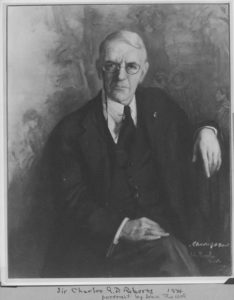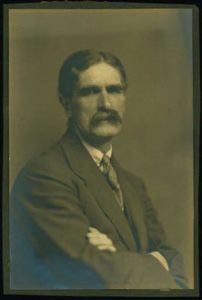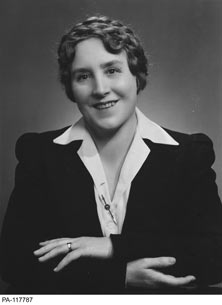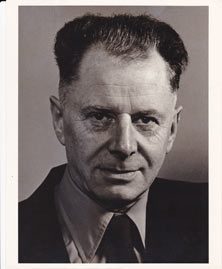
An Overview of the History of the Canadian Writers’ Foundation by Sandra Campbell
The Canadian Writers’ Foundation, or La Fondation des écrivains canadiens inc., is a non-profit charitable organization, founded in 1931, which provides financial support to accomplished senior Canadian writers in need of assistance due to age or chronic illness. The Foundation currently has an eight- member, unremunerated board of directors, which meets in Ottawa, as well as numerous advisors from across Canada. The Foundation offers pensions and one-time grants, drawn from its endowment, to needy Canadian writers, both anglophone and francophone. The identity of writers receiving support is always kept confidential during their lifetimes. Past recipients of financial aid, most on a long-term basis, have included such distinguished Canadian writers as the late Dorothy Livesay, Scott Symons, Yves Theriault, Norman Levine, Mavis Gallant, Irving Layton and many others.
First formed by Professor Pelham Edgar of Victoria College, University of Toronto and his allies across Canada in 1931 as the Canadian Authors’ Foundation, this philanthropic body was subsequently chartered on 2 March 1945, as the Canadian Writers’ Foundation, Inc.. (Campbell, 1983) (1) The Foundation’s chronicler, Walter Dawson (the pseudonym of Donald W. Thomson) in his The Foundation & the Man (1959 , repr. 2007), a history of the organization, has reminded Canadians that the Foundation’s Declaration of Trust describes its purpose, namely “to create, provide and enlarge a perpetual fund for the benefit of any man or woman of distinction in Canadian letters or any dependent or dependents thereof, or for the benefit of any person who shall have made a notable contribution to Canadian letters, when such men or women shall find themselves in destitution.” (2) This mandate has animated the Foundation, its officers and supporters since its inception, despite formidable fund-raising challenges in the early years.
History
Writing in Canada has historically been a financially precarious profession, with many accomplished full-time writers earning royalties and other income at a rate below the poverty line, with no formal provision for occupational pensions in later life. The availability of Canada Council and other grants, and of government-sponsored royalty payments for library holdings of an authors’ book, for example, is of relatively recent origin. Moreover, in this country, private philanthropy has never been as substantial or as traditional as, for example, in the United States. Furthermore, Canada, unlike Britain, has never had a Civil List to aid needy writers — although the province of Quebec has historically been more disposed to aid its writers than has the rest of Canada.

Charles G.D. Roberts, Queen’s University Archives
The genesis of the Canadian Writers’ Foundation came out of the perpetually straitened circumstances of one of Canada’s best-known turn of the nineteenth century poets in his later years. Circa 1930, the penury of writer Charles G.D. Roberts (1860-1943), the pioneering poet of the Confederation era in Canadian literature, led to the formation of what is now the CWF. That is to say, by the advent of the Great Depression, Roberts, back in Canada after decades of living abroad, was elderly and in dire need of financial support. During their careers, both Roberts and his equally famous cousin, poet Bliss Carman (1861-1929), were not only leading writers but of necessity experts at juggling insufficient funds and securing personal loans from admirers here and abroad. Why? Theirs was a Canada with a small and scattered literary market and various copyright anomalies injurious to many Canadian writers.

Pelham Edgar, Victoria University Library (Toronto)
Professor Pelham Edgar (1871-1948) of the English Department at Victoria College — well-known since early in the twentieth century as a literary critic and mentor to writers like E.J. Pratt, Duncan Campbell Scott, Raymond Knister and Northrop Frye — resolved in the midst of the Depression to find a way to financially aid Roberts, who had been living a precarious financial existence in Toronto since the mid-1920s. Thanks to demarches across Canada during 1931, aided by a railway pass from John Murray Gibbon, man of letters and official of the Canadian Pacific Railway, Pelham Edgar roused interested Canadian book lovers and philanthropists – including Ottawa newspaper publisher P.D. Ross, poet and civil servant Duncan Campbell Scott, Alberta writer and police magistrate Emily Murphy (“Janey Canuck”) and many others , to appeal to the federal government to support Roberts.
Thanks to Edgar’s persistent lobbying of the federal government and of Lord Bessborough, the Canadian governor general of the day, the Conservative government of Prime Minister R.B. Bennett ultimately agreed to provide an annual sum (initially $2500) for Roberts’ support. It is telling that, at its inception, the sum was masked in federal budget estimates under the guise of funds allegedly allocated to the Foundation for a projected report on the state of Canadian literature. The federal government was still reluctant to be publicly seen to be supporting individual Canadian writers, and the Foundation was an important conduit for early federal support of Canadian authors.
Edgar envisioned a greater role for the Foundation than the support of just one needy writer among many. He continued to lobby and fundraise for the cause with the help of allies like publisher Lorne Pierce of Ryerson Press, University of Toronto president Sir Robert Falconer and Toronto artist and art printer Albert Robson. They worked toward the establishment of a permanent endowment for the Foundation, a difficult feat in the Depression and its aftermath. Despite the Foundation’s meagre resources, writers aided in the 1930s and 1940s included novelists Laura Goodman Salverson and Marshall Saunders and poet Audrey Alexandra Brown. The death of Charles (since 1935 Sir Charles) G.D. Roberts in 1943 marked an evolution in the history of the Foundation: the federal grant lapsed. As a result, efforts to put the Foundation on a broader and more secure footing intensified, given the plight of aged and impoverished writers like Saunders and Salverson.
From 1943, Edgar, Pierce, and board members Wilfrid Eggleston, Gustave Lanctot, Jean Bruchesi and Charles Clay (its first Executive Secretary, 1943-1946) and others, continued to work to raise more funds. The Foundation was formally incorporated in 1945, with a name change to The Canadian Writers’ Foundation Inc./La Fondation des écrivains canadiens, a change made to avoid confusion with another literary organization, the Canadian Authors’ Association. From 1949, annual financial donations were received from the government of Quebec and La Société des écrivains canadiens, with Berthelot Brunet becoming the first francophone beneficiary of the Foundation (1947-1968), a decision that underlined the Foundation’s bilingual and bicultural mandate. In 1946, the federal government under Prime Minister Mackenzie King reinstated the Foundation’s annual grant of $2500, a grant which eventually rose to $6000 before this particular funding responsibility was transferred to the Canada Council, whose financial involvement continued through the 1970s and 1980s.

Theresa E. Thomson, Library and Archives Canada, copy negative number PA-117787
After the death of CWF founder Pelham Edgar in 1948, Lorne Pierce, publisher and board member, with the help of CWF executive secretary-treasurer from 1946, Theresa Thomson (herself a poet) spearheaded the long effort to put the Foundation on firmer financial ground to better aid Canadian writers. Part of the strategy was the setting up of the Pelham Edgar Memorial Fund in 1953 to work toward giving the organization a permanent endowment. CWF beneficiaries in the 1940s and 1950s included Salverson, Frederick Philip Grove, Hugh MacLennan and Paul Morin.
Francophone Gustave Lanctot served as CWF president from 1949 to 1955; during his term, aided by board member Jean Bruchesi, Lanctot persuaded the federal government to increase its grant and the government of Quebec to become the first province to grant annual funding. Albert Trueman, Lanctot’s successor as president (1955-57), was able to effect another increase in the federal grant and to effectively fundraise from private sources and the general public before resigning to head the Canada Council in 1957. Trueman – like the Foundation executive generally — believed strongly that the Foundation must enlist the support of individual Canadians as well as government funding in carrying out its important work for Canadian literature.

Raymond C. Hull, The Canadian Writers’ Foundation
To this end, from the 1950s, such Foundation board members as novelist Robertson Davies, historian C.P. Stacey, and Commander C. Herbert Little, Foundation president from 1978 to 1998, as well as writers June Callwood and Pierre Berton, lobbied publishers, companies and individual Canadians to donate to the Foundation, whether by individual offerings or planned bequests. In the late 1980s, British Columbia writer Raymond C. Hull (1919-1985), co-author (with Laurence J. Peter) of the perennial management theory bestseller, The Peter Principle, recognised the importance of the Foundation’s work by willing a portion of his estate – including copyright to his many works — to the Foundation. Today, the Foundation has an endowment fund of approximately one million dollars and provides pensions to several writers, as well as offering one-time grants on an individual case basis, even as it seeks to expand its endowment funds to offer wider support to elderly or ill Canadian writers.
Writers aided in the last thirty years include BC poet Bill bissett, Atlantic Canada poet Milton Acorn, Manitoba poet Anne Marriott, Quebec writer Berthelot Brunet and Ontario writer Jessie Louise Beattie. In the words of another grantee, West coast writer Dorothy Livesay, the grant “allowed [me] to do things beyond mere existence … you have made me relaxed and happy.” (3) The need is great: the funds are limited.
To emphasize their commitment, CWF board members are not compensated for their services or for any expenses involved in attending meetings. Directors (currently eight in number) are elected for a three-year term. The Foundation, a registered charity, has a part-time paid Executive Secretary. In the past, grants have been received from the Canadian Authors’ Association, and the Writers’ Trust of Canada as well as from the above-mentioned sources: currently the Foundation relies on its endowment and on the generosity of individual Canadians to sustain its vital work. To that end, and to provide information to the Canadian literary community in both official languages, the Foundation maintains a bilingual website. For CWF assistance, eligibility stipulations include that an applicant for assistance must be a writer of significant literary achievement who is 60 years of age or over, be resident in Canada for CWF pension eligibility, be infirm or unable to earn adequate income, and have an annual income of $21,500 or less. There is also a Special Circumstances grant programme for consideration of short term grants from applicants who are 55 years of age or over whose income is below the poverty level.
Since 1952, the records of the Canadian Writers’ Foundation have been deposited at Library and Archives Canada, with permission for access available to interested researchers from the Foundation itself. The structure, constitution and granting procedures of the Canadian Writers’ Foundation have been streamlined over the years to offer realistic funding for the times in question, as well as to create an efficient and representative board that currently stands at eight members with former national librarian Marianne Scott as president since 2008; she succeeded Ottawa librarian Gilles Frappier (1998-2008). The role of the governor general in encouraging the Foundation since its inception was underlined in 1991, when the Foundation’s 60th anniversary meeting was held at Rideau Hall. The current governor general is — as is customary — a patron of the Foundation.
Over the last eight decades, writers as diverse as journalist June Callwood (“This organization deserves the help and gratitude of us all) and novelist Marie-Claire Blais (“… il faut que cette aide puisse l’appuyer afin qu’il [l’écrivain] puisse écrire dans la paix et la dignité, car ce respect lui est dû ») (4) have testified to the vital mission of the Canadian Writers’ Foundation to offer financial aid to gifted writers in a Canada where, regrettably, many accomplished creative writers continue to struggle with old age, illness and poverty, even in the 21st century.
Sources
Adams, James. “Making the literary life a little less precarious.” Globe and Mail (Toronto): 14 February 2009.
Boone, Laurel, ed. The Collected Letters of Sir Charles G.D. Roberts. Fredericton: Goose Lane, 1989.
Campbell, Sandra. Both Hands: A Life of Lorne Pierce of Ryerson Press. Montreal: McGill-Queen’s University Press, 2013.
The Canadian Literary Career of Professor Pelham Edgar,” unpublished doctoral dissertation, Dept of English, University of Ottawa, 1983.
Canadian Writers’ Foundation Fonds. Library and Archives Canada. Ottawa, Ontario.
Dawson, Walter (pseudonym of Don W. Thomson). The Foundation & the Man. Toronto: privately printed [Ryerson Press], 1957. Second Edition, Ottawa: Penumbra Press, 2007.
Edgar, Pelham. “The Author’s Foundation,” [Canadian Authors’ Association] Authors’ Bulletin20 (September 1931), 9.
Eggleston, Wilfrid. Literary Friends. Ottawa: Borealis, 1980.
Harrington, Lyn. Syllables of Recorded Time: The Story of the Canadian Authors’ Association 1921-1981. Toronto: Simon and Pierre, 1981
“$100,000 Foundation Planned,” Toronto Mail, 2 April 1931.
Pacey, Desmond, ed. The Collected Letters of Frederick Philip Grove. Toronto: University of Toronto Press, 1976.
(1) For an account of Pelham Edgar and the founding of the Foundation, see Sandra Campbell, “The Canadian Literary Career of Professor Pelham Edgar,” doctoral dissertation, University of Ottawa, 1983, 157, 274-277.
(2) Walter Dawson {pseudonym of Donald W. Thomson], The Foundation & the Man (second edition, Manotick, Ontario: Penumbra Press, 2007), 13. This authorized history, in company with the CWF fonds, is the source for the chronology of the organization.
(3) Dorothy Livesay, letter excerpts, quoted in 1992 and 1997 CWF Minutes, Suzanne Williams, editor, “CWF notes from Minutes of 1931-2012,” n.p.
(4) Callwood and Blais are quoted in Gwen Hoover and Marianne Scott, “Introduction” to Dawson, The Foundation & the Man, 9-10…
The reprinted pamphlet, The Foundation & the Man, written by Walter Dawson (aka Don W. Thomson, former president of The Canadian Writers’ Foundation) is the history of The Canadian Writers’ Foundation covering the years from 1931 through 1959. Copies are available upon request from the CWF office contact.
More About Key People
Pelham Edgar: A tribute
by C.H. Little
(First published in Canadian Author & Bookman, Volume 58, Number 4, Summer 1983)
I met Pelham Edgar about 1926 at the Toronto Zeta Psi fraternity to which we both belonged. He was then in his middle fifties, tall and spare, with piercing dark eyes under thick eyebrows and a wealth of lustrous black hair. His aquiline nose surmounted the largest black mustache I had ever seen – it was difficult not to stare at in fascination. Being enrolled at another college I had no occasion to sit in his classes, but we had common interests in Upper Canada College, and cricket of which he was inordinately fond.
Today, Pelham Edgar is recognized as a “uniquely important figure in Canadian letters” (to quote Northrop Frye). He was a great teacher of English, a renowned critic and a staunch supporter of Canadian writing who did not fall into the error that nationality atones for inferior quality. He edited five books, and his pamphlets, essays, and reviews were published by the dozen in the leading journals of the day.
Dr. Edgar’s most important achievement in human terms, however, is the Canadian Writers’ Foundation Incorporated (1945) which he created almost single handedly in 1931 as the Canadian Authors Foundation to provide a perpetual fund “for the benefit of any men or women of distinction in Canadian letters (or their dependents)…in destitution.”
The Governor-General, Lord Bessborough, became the first Patron at Dr. Edgar’s request. The energetic professor then toured Western Canada to explain the generous aims of the Foundation, a distinguished Board of Governors was appointed and, on the 20th of October, a public meeting was held in the University of Toronto’s Convocation Hall with Sir Robert Falconer in the chair, and a galaxy of important speakers.
Prospects seemed bright but the Depression blocked any meaningful progress. In short, the Foundation had fine ideals but no funds.
A cruel example of the inability to act was the case of Raymond Knister, one of Dr. Edgar’s former students. He had published through Ryerson two novels so well thought of that he was judged the most promising novelist Canada had produced in the Thomas Hardy style, and had edited for Macmillan Canadian Short Stories as well as having a number of his own in print. But markets dried up, a publishing house failed, he was reduced to penury and despair. When in May 1932, he asked the Foundation for a loan of $400 to tide him over until his new writings were sold, Dr. Edgar could not point to any organization in Canada capable of extending aid. Raymond Knister was drowned in August. He was only thirty-two. This tragic waste spurred Dr. Edgar and Dr. Lorne Pierce of Ryerson’s to a firm resolve that a permanent fund must be established, independent of appeals to the general public, for use in future emergencies.
Replying to Dr. Edgar’s pleas, Prime Minister Bennett allocated $2,500 in the 1933-34 Federal estimates as an annual grant to Sir Charles G. D. Roberts. This was paid until his death in 1943 but then ceased entirely. The next applicant of note was Miss Marshall Saunders, left alone and indigent at the age of eighty-two. Since no government funds were available, a public appeal was made in 1943. Although this appeal had some success, it was clear that the Foundation must have money on hand for the future. Dr. Edgar spearheaded a campaign to set up a permanent Endowment Fund. He received the first cheque for that purpose from the Earl of Athlone, then Governor General of Canada.
After Sir Robert Falconer’s death in 1943, Pelham Edgar succeeded him as President of the Foundation and led a movement to have it incorporated in 1945 and reorganized with the same basic ideals but much more practical ways of raising money and distributing help. At the time of his death in 1948 he could take pride in the realization of the beginning of his dream: an enduring national organization with reasonable and secure funds to sustain and encourage distinguished Canadian Writers in need.
Copyright © 1983, CAA
Raymond C. Hull: Benefactor
by Anthony Hyde and Suzanne Williams
Raymond C. Hull, born in England, came to Canada in 1947, and turned into something of an oddball among Canadian writers. Living in Vancouver, it wasn’t till he was in his thirties that he became interested in writing, largely as the result of a summer creative writing course at UBC. For the next several years, he supported himself in a variety of odd jobs, continued to take courses in writing, and began submitting his work, mainly plays, to the CBC. Eventually he became successful enough to work full-time at writing, and helped formed the Gastown Players in Vancouver, to produce his own (and other people’s) dramas — mostly melodramas, such as The Drunkard and Wedded to a Villain. It was after one of these plays that he first met Laurence J. Peter, a Vancouver educationalist, and after talking about Hull’s play, Peter casually mentioned his interest in the sociology of organizations. Hull was intrigued, kept Peter talking far into the night, and eventually collaborated with him on The Peter Principle, a huge bestseller. (The actual ‘principle’ is summed up in the quotation, ‘In a hierarchy, an individual tends to rise to his level of incompetence.’) Laurence Peter died in 1990, Hull in 1985.
On his death, Hull willed all his copyrights, publication rights and royalties on written works authored or co-authored by him — including his share of royalties in The Peter Principle – to the Canadian Writer’s Foundation. He also left the total residue of his estate to the tune of $500,000 to the Foundation, all of which have provided thousands of dollars in revenue from interest to the organization over the years. Other recipients of his estate were the University of British Columbia, Main Library, who received all his books, literary notes, literary correspondence, note books, documents, files and manuscripts of all his published and unpublished literary works, along with the right to benefit from any publishings there from for the purchase of books by Canadian writers; and $100,000 to the Vancouver Public Library to purchase books by Canadian writers.
The Hull bequest came with the stipulation that the money be invested and only the revenue generated from these investments could be used to help finance the Foundation’s mission of assisting Canadian writers in need.
It is our hope that this story will encourage other bequests of either large sums of money to go to the endowment fund (investments) to help generate annual revenue to enable the Foundation to continue to provide financial assistance to Canadian writers in need, and/or any copyright, publication rights and royalties on written works authored or co-authored by the benefactor.
Please see the Donation Information page for information on donating to this worthy program. Tax receipts are issued for all donations, bequests, and in memoriam tributes.
Past Presidents
| Gilles Frappier | 1998-2008 |
| C. Herbert Little | 1978-1998 |
| John E. Robbins | 1976-1978 |
| Donald W. Thomson | 1973-1976 |
| Claude B. Aubry | 1971-1973 |
| George Buxton | 1966-1968 |
| Auguste Morisset | 1966-1968 |
| Arthur Bourinot | 1964-1966 |
| Edna Dorman | 1963-1964 |
| James A. Gibson | 1961-1963 |
| Guy Sylvestre | 1959-1961 |
| Charles P. Stacey | 1958-1959 |
| Albert W. Trueman | 1955-1958 |
| Gustave Lanctot | 1948-1955 |
| Pelham Edgar | 1943-1948 |
| Robert Falconer | 1931-1943 |